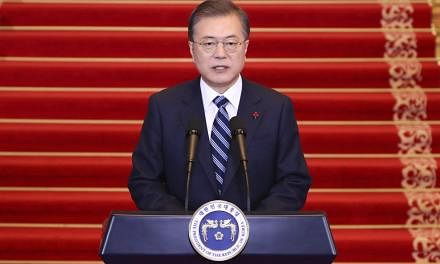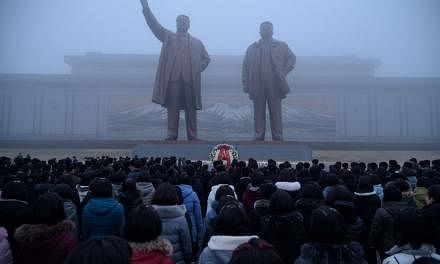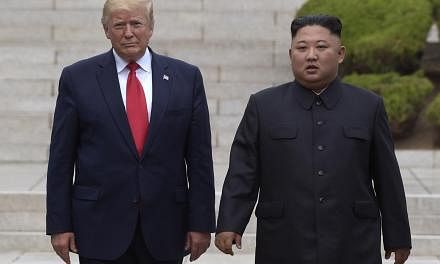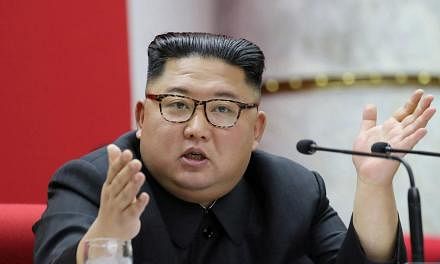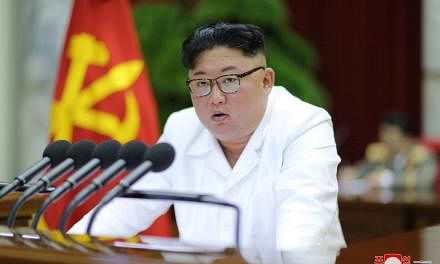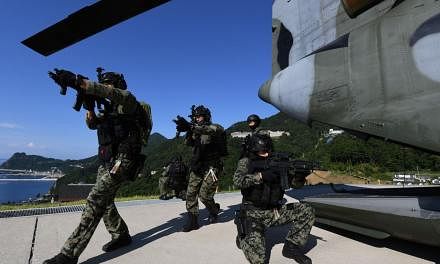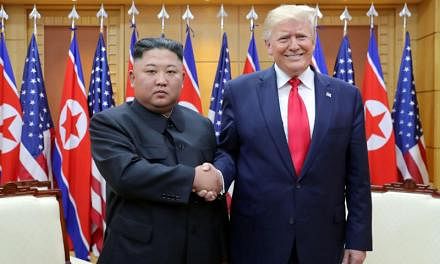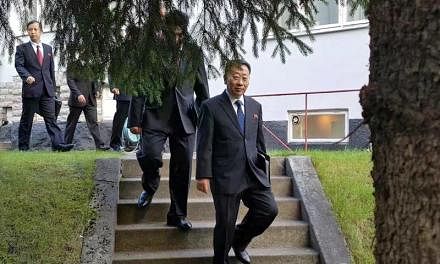SEOUL • A year after the first United States-North Korea summit, most people in countries with a stake in the process think relations between the old rivals have not improved significantly, highlighting a stalemate in their nuclear talks, a poll shows.
US President Donald Trump and North Korean leader Kim Jong Un met in Singapore on June 12 last year, after trading insults and nuclear threats that pushed their countries to the brink of war.
But negotiations aimed at ending North Korea's nuclear and missile programmes have stalled since their second summit in Vietnamese capital Hanoi broke down in February.
In a poll commissioned by the Korea Foundation-Vrije Universiteit Brussel (KF-VUB) Korea chair and released to Reuters, most respondents in the US, Japan and Russia said relations between Washington and Pyongyang were similar to what they were a year ago.
China was the only country where a majority of respondents said the relationship had improved, whereas 30 per cent of Americans and 27 per cent of Japanese said it had worsened.
The survey was conducted by market research firm Ipsos Mori, which interviewed 1,000 citizens in the US, China, Japan and Russia for two weeks from the end of last month. It was due to be published yesterday.
"The fact that there was no agreement in Hanoi - even though in the build-up there were discussions about a deal, possibly including a peace declaration - has had a negative effect on public views about the diplomatic process with North Korea," said Mr Ramon Pacheco Pardo, the KF-VUB Korea chair, who steered the survey.
"The public in the countries surveyed seems to be sitting on the fence, waiting to see whether an agreement is reached or, in contrast, negotiations break down."
The survey reinforces a common perception that there is no clear option to engineer a breakthrough.
More than half of those surveyed in the US and Japan believed that sanctions should be employed alongside dialogue in dealing with North Korea.
In contrast, diplomacy was the most popular option among Russians, at 69 per cent. In China, 43 per cent of respondents prioritised focusing on diplomacy, or supported a twin-track approach of diplomacy and sanctions.
